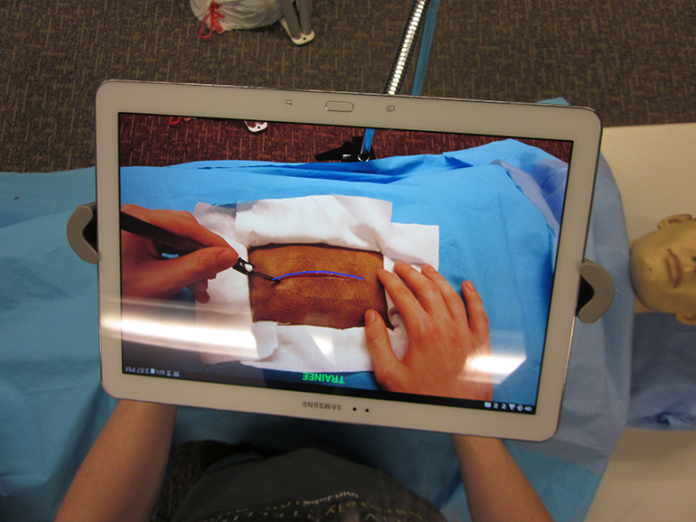
Scientific collaborators at Purdue University and the Indiana University School of Medicine have been working on new technology to help surgeons on the battlefield receive guidance from remote specialists when dealing with difficult trauma cases. There are existing systems that allow a physician in a distant location to markup video coming from a surgeon working on a patient. While the video comes from the point of view of the surgeon, the notes are displayed on a nearby monitor, requiring constant glancing back and forth between the screen and the working area. The new System for Telementoring with Augmented Reality (STAR) provides a more natural way for the docs to interact, relying on augmented reality technology to make notes and point at relevant anatomy in an intuitive way. The technology uses a few selected visual recognition algorithms to stabilize text above relevant locations, even if the screen is moved or something new happens within the transparent display’s field of view.
The system utilizees a transparent display that’s positioned over the working field, essentially allowing the surgeon and remote specialist to see from the same field of view and for the notes to also be seen identically by both sides. While the system has been developed with the help of the Pentagon, it should be just as applicable in clinics with a limited physician staff. So far the researchers have been testing the STAR system in an environment that simulates a field hospital, helping to perform cricothyrotomies, laparotomies, and fasciotomies. The team published results of their findings in the scientific journal The Visual Composer.
Here’s an animation of how the system would be used in a military setting:
Study in journal The Visual Computer: Virtual annotations of the surgical field through an augmented reality transparent display…
Via: Purdue…
The post Augmented Reality System Helps Military Surgeons Treat Wounded Warriors (VIDEO) appeared first on Medgadget.
